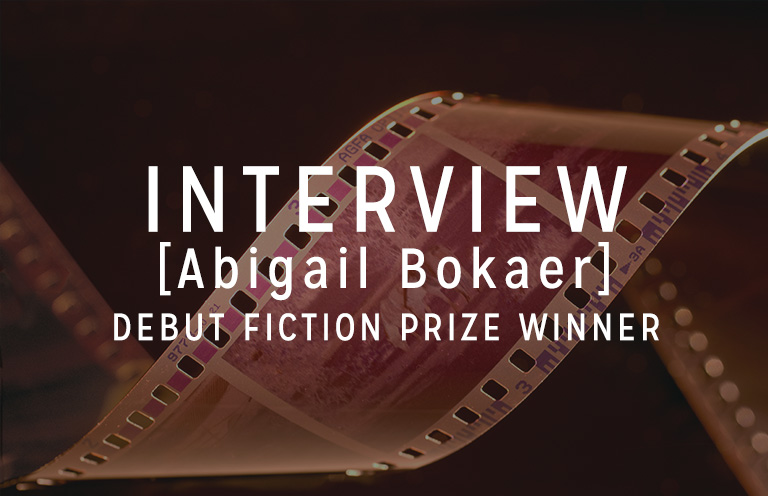Abigail Bokaer’s “Made in Wonderland” won second place in our Debut Fiction Contest. Read her story here and then check out this interview in which she talks about the parallels between movies and stories, writing the child narrator, and her writing routine.

Movies play a huge role in this story, both as the impetus of the plot, but also because they’re where the family goes to be together and celebrate the near completion of the film Pa is making. What parallels or differences do you see between movies and stories?
Going to the movies was a big part of my childhood because of my father’s passion for the cinema. We often watched a beloved film many times over, to the point where my family was able to say the lines along with the actors on the screen. My father’s descriptions of watching movies as a child in Tunisia are of lively and interactive affairs, with people shouting forebodings about oncoming danger, or reacting to the love scenes with superlatives. Likewise, my grandmother’s storytelling style was imbued with full-body dramatism, which, in a way, was like watching actors in a film. My father inherited his mother’s flair for telling vibrant tales. As a child growing up, I believe there was a blurred line between listening to stories at home and going to the movies. I’m a visual thinker, and being immersed in watching film from a young age helped me think about narrative through a cinematic lens.
I’m always interested when writers pull off a child narrator. In “Made in Wonderland,” you have a precocious but very young narrator. Can you talk about some of the challenges a child narrator brings?
I felt drawn to writing a child narrator in “Made in Wonderland” with the intention of creating dissonance between action and understanding. The young storyteller lacks mature analysis of events, and I find the gaps in her perception to be an interesting opportunity to allow the adult reader to construe meaning. Writing through the lens of the child offers a chance for reflection on a time when belief in intuition and myth felt heightened. One of the challenges that I face with a child narrator is slipping out of her viewpoint and letting my adult mind take over. As far as writing a young but precocious person, Harper Lee’s Scout Finch in To Kill a Mockingbird is an archetype that is ingrained in my consciousness.
To me, this is a story, at least in part, about belonging or not belonging. How do you see the role of belonging creating or adding to the central tension of this story?
Having a parent who is a brown Arab Jew and an immigrant to the US highlighted the notion of belonging throughout my childhood. I grew up with white privilege that my father didn’t have, and that is a conflict that I strove to emphasize in the story. “Made in Wonderland” takes place during the 1970s, and I don’t know of movie directors from that period who looked like my father and made a name for themselves in the avant-garde film scene. I tried to show the sense of belonging or lack of belonging through blatant racism and also in more subtle reactions that characters have to the narrator’s father.
I saw that you’re also the fiction editor at The Stonecoast Review (my alma mater, although we’ve never met!). In what way—if at all—does reading other writers’ work impact your writing?
I was the fiction editor of The Stonecoast Review last semester, and the experience helped me better understand the qualities in stories that worked for me, versus those that I didn’t engage with. Further, being in the Stonecoast MFA program offers numerous opportunities to read and share work with other students. One of the most impactful aspects of reading the writing of people in the Stonecoast community is witnessing their growth mindset, openness to revisions, and commitment to making their writing the best it can be. I’m in my third semester, and the writing of the people in my cohort has gotten so much sharper. I see how hard they’re working, and I say to myself, I’d better get busy too. Reading and sharing work with dedicated writers is a great inspiration.
What’s your writing process like? Do you have a routine or do you write when inspiration strikes?
Yes, I’m all about routine. I’m a morning writer—I wake up, make coffee, and get to work.
Interviewed by Jen Dupree
